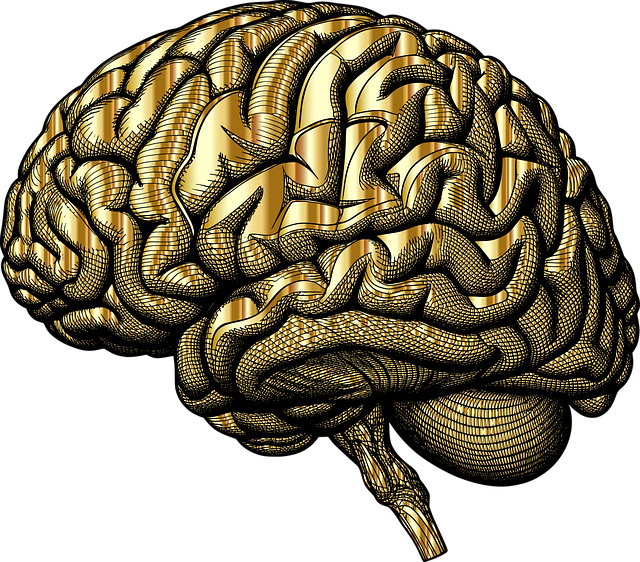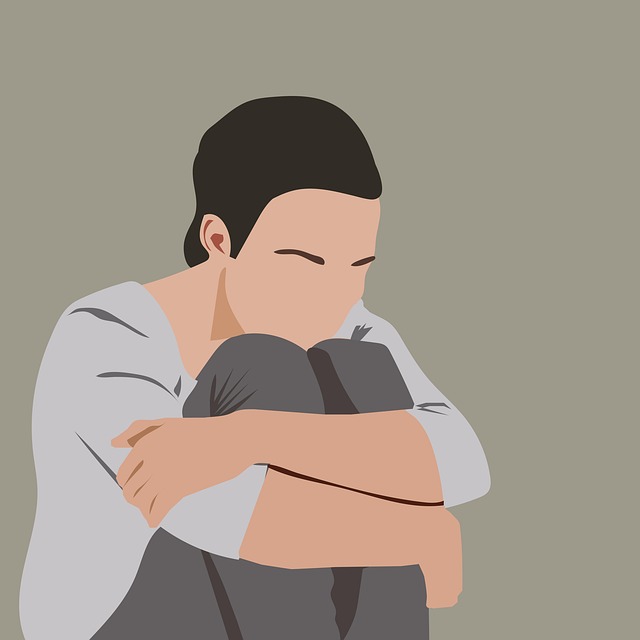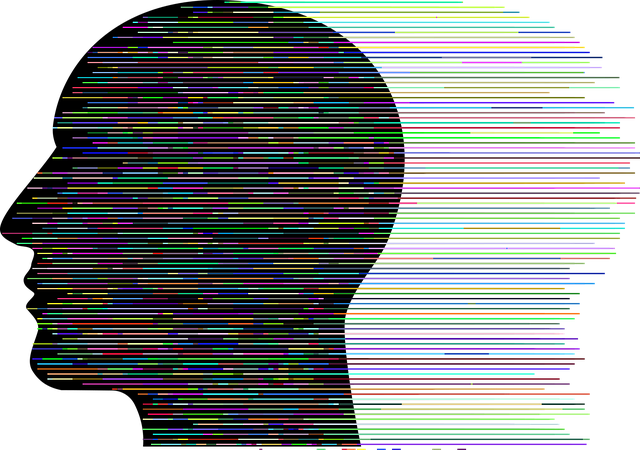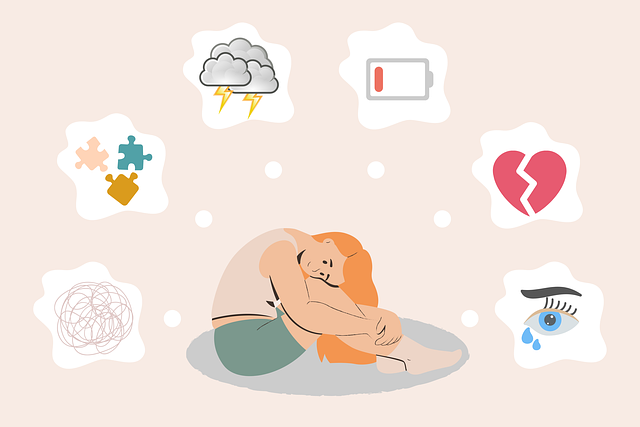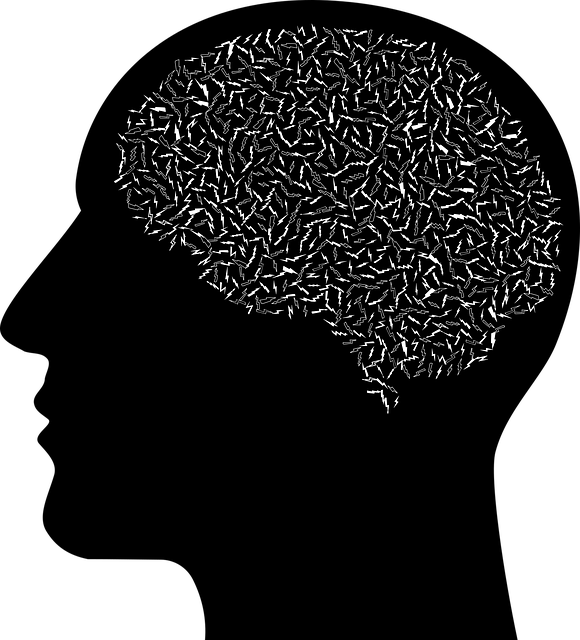Cultural sensitivity is critical for effective treatment of Castle Rock Oppositional Defiance Disorder (CROD), a mental health challenge particularly prevalent among diverse ethnic and racial groups. Mental healthcare professionals must understand cultural nuances to address CROD appropriately, as perceptions of mental illness and coping methods vary widely. Strategies like empathy building, tailored interventions, and encouraging self-care routines significantly enhance outcomes. Public awareness campaigns promoting cultural sensitivity and education for both therapists and clients are key to breaking down barriers. Effective communication, inclusive language, and active listening foster stronger therapeutic alliances, transcending cultural disparities in CROD therapy.
In an increasingly diverse world, cultural sensitivity is paramount in mental healthcare. Understanding how cultural background shapes mental health disorders is crucial for effective treatment. This article explores key aspects of culturally competent practice, focusing on conditions like Castle Rock Oppositional Defiance Disorder (CDDO). We discuss the impact of cultural nuances on therapy, navigate challenges in cross-cultural care, and present strategies to enhance services for diverse populations, ultimately bridging gaps and improving outcomes.
- Understanding Cultural Sensitivity in Mental Healthcare
- The Impact of Cultural Background on Mental Health Disorders
- Challenges in Providing Cross-Cultural Therapy
- Strategies for Culturally Competent Practice with CDD
- Building Bridge: Effective Communication Techniques
Understanding Cultural Sensitivity in Mental Healthcare

Cultural sensitivity in mental healthcare is a critical component that ensures effective treatment for individuals from diverse backgrounds. It involves recognizing and appreciating cultural differences, which can significantly impact how people express emotions, seek help, and respond to various therapeutic interventions. In the context of Castle Rock Oppositional Defiance Disorder (CROD) therapy, understanding a patient’s cultural context is essential. CROD often manifests differently across cultures due to varying social norms, family structures, and expressions of anger or defiance.
Mental Health Policy Analysis and Advocacy plays a vital role in promoting cultural sensitivity by shaping practices that support diverse communities. Empathy Building Strategies are integral to this process, fostering connections between healthcare providers and patients from different cultural backgrounds. By incorporating these strategies, therapists can enhance their ability to offer tailored care, which can lead to improved Resilience Building among individuals facing mental health challenges like CROD.
The Impact of Cultural Background on Mental Health Disorders

Our cultural backgrounds profoundly shape our experiences and perceptions, which, in turn, influence how we express and cope with mental health disorders. Individuals from diverse ethnic, racial, and cultural groups may exhibit unique symptoms and present for care differently. For instance, a study on Castle Rock Oppositional Defiance Disorder (CROD) revealed that minority youth often face additional challenges due to intersecting systemic barriers and cultural misunderstandings. What works for one patient might not be effective for another, emphasizing the need for culturally sensitive approaches in therapy.
Compassion cultivation practices, crisis intervention guidance, and self-care routine development tailored to these nuances can significantly improve outcomes. By incorporating cultural awareness into mental healthcare practices, we move towards more inclusive and effective support systems, ensuring that everyone receives care that respects their background and promotes healing.
Challenges in Providing Cross-Cultural Therapy

Providing cross-cultural therapy presents unique challenges that mental healthcare professionals must navigate to offer effective support. When working with individuals from diverse backgrounds, understanding cultural nuances and beliefs is paramount. For instance, a patient’s perception of mental illness and their preferred methods of coping can be significantly influenced by their cultural context. What may be considered a healthy expression of emotions in one culture could be viewed as disruptive or even shameful in another. This cultural disparity often requires therapists to adapt their practices, ensuring they offer non-judgmental, culturally sensitive care.
In the case of treating Castle Rock Oppositional Defiance Disorder (CROD), for example, therapists must be attuned to the patient’s cultural identity and family dynamics. CROD is a complex condition that can stem from various factors, including environmental influences and underlying mental health concerns. Therapists need to consider how cultural beliefs about discipline, authority, and emotional expression might impact a patient’s behavior and their family’s approach to seeking help. By incorporating culturally tailored interventions, such as encouraging self-esteem improvement and promoting positive thinking, therapists can foster meaningful connections with their clients and address the unique challenges they face. Public awareness campaigns development that highlight cultural sensitivity in mental healthcare can also play a pivotal role in breaking down barriers and ensuring diverse communities feel supported.
Strategies for Culturally Competent Practice with CDD

Culturally competent practice is essential when addressing mental health issues like Castle Rock Oppositional Defiance Disorder (CROD). Therapists play a crucial role in promoting understanding and acceptance, especially in diverse communities. One effective strategy involves educating oneself and one’s clients about CROD within various cultural contexts, ensuring accurate diagnoses and tailored treatment plans. By integrating knowledge from public awareness campaigns development, professionals can dispel stereotypes and foster empathy.
Additionally, encouraging self-care routine development for better mental health is a valuable technique. This approach respects cultural differences in coping mechanisms and promotes emotional well-being. Through open dialogue, therapists can explore clients’ perspectives, incorporate traditional healing practices where relevant, and design holistic treatment strategies that resonate with individual backgrounds.
Building Bridge: Effective Communication Techniques

Building bridges through effective communication is a cornerstone of cultural sensitivity in mental healthcare practice. It involves understanding and embracing diverse perspectives, which are often crucial for treating conditions like Castle Rock Oppositional Defiance Disorder (CROD). Healthcare providers must learn to navigate complex cultural landscapes, ensuring every patient feels heard and respected. This includes adopting active listening skills, using inclusive language, and demonstrating empathy towards patients’ unique backgrounds and experiences.
Risk Management Planning for Mental Health Professionals plays a vital role in fostering these communication techniques. Healthcare Provider Cultural Competency Training equips practitioners with the knowledge to adapt their approach, promoting safer and more effective therapy sessions. By integrating these strategies, mental health professionals can enhance the quality of care, encourage Inner Strength Development in patients, and ultimately build stronger therapeutic alliances, regardless of cultural disparities.
Incorporating cultural sensitivity into mental healthcare practice is essential, especially when addressing disorders like Castle Rock Oppositional Defiance Disorder (CDD). By understanding the impact of cultural backgrounds on mental health and implementing strategies for culturally competent care, therapists can overcome challenges in cross-cultural therapy. Effective communication techniques, as highlighted in this article, serve as bridges to foster inclusive environments, ensuring all clients receive tailored support for their unique needs.

